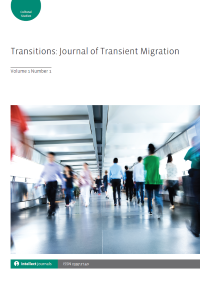
Full text loading...

'Travelling' Englishes and neo-liberal ideologies and policies to Qatar have implications for perceptions towards languages other than English, in particular Qatar's migrant languages. The current spotlight on the West and English in Qatar, often viewed in juxtaposition to Arabic, and in competition with it, has led to other languages that play an important role in the society and are part of the linguistic ecology of the region, being ignored. While the capital, status and position of these languages is variable, Qatar has chosen to favour English, leaving multilingualism and linguistic diversity off the agenda. This study examines Qatari students' perceptions about learning migrant languages in Qatar vis-à-vis English and looks at how the mobility of Englishes has in some ways generated further inequalities in Qatar, especially regarding knowledge and appreciation of its migrant languages. Important implications of these findings are discussed in terms of the interface of the impact of travelling Englishes with Qatar's growing linguistic diversity and trajectories related to language planning and policy, as well as Qatar's national identity and visions.

Article metrics loading...

Full text loading...
References


Data & Media loading...

Publication Date:
https://doi.org/10.1386/tjtm_00006_1 Published content will be available immediately after check-out or when it is released in case of a pre-order. Please make sure to be logged in to see all available purchase options.